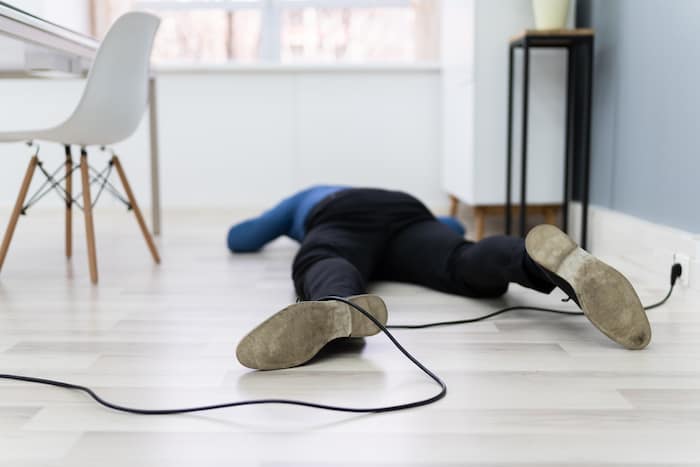When it comes to injuries, people could experience the physical, mental, or emotional kind. And in countries where one’s rights are upheld, such as in the US, it’s possible to pursue legal claims in any state court when one gets hurt. But which kind of claim?
In life, it’s essential to realize that one could get hurt at home, in public, or even have an injury at work. The location would dictate the difference between the kind of claim you could pursue. It’s imperative to know the two: personal injury or workers compensation. While each aspect has its parameters for claims, they also share similarities. Understanding the scenarios and cases that differentiate the two would help.
Here are some pointers.
Personal Injury Cases
Personal injury cases are often the result of an action caused by another party. If you were the aggravated party, then you would definitely want to file a case for damages. There are two categories in which personal injury cases fall under: strict liability and intentional wrongs. You should determine where your case belongs.
- Strict Liability
Strict liability pertains to the consequences of the actions of a certain individual or party. It could be the result of an accidental scenario or an action that didn’t intend any harm or criminal intent. For example, when designers or manufacturers make faulty products, they are liable for the injuries caused by their defective products. In this scenario, though, you must be able to prove that the product that you purchased was dangerous and harmful.
Other types of strict liability include:
- Ownership of animals that could cause (unintentional) harm
- Accidents due to negligence or carelessness
- Product liability
- Selling alcohol to minors
These cases could also overlap with other scenarios, so it’s best to consult a lawyer for clarity.

- Intentional Wrongs
Intentional wrongs, on the other hand, are those that cause personal injuries with the intent of harm or malice. Typical examples include obvious altercations between two parties, for example, a physical fight or a car accident where the other party was liable. In such cases, it’s important to establish the fact that one party meant to cause harm to the other.
Other types of intentional wrong include:
- Fraud
- Misrepresentation
- False imprisonment
- Defamation or slander
- Assault and battery
- Trespassing
Approaching lawyers who can help you claim compensation for the different scenarios that fall under personal injury can help you determine the steps you need to take to win your case.
Workers’ Compensation Cases
Workers’ compensation claims refer to those cases wherein the injured person was hurt while on the job. If you are unable to work for more than seven days as a result of a workplace injury, you can file for compensation. Not only do you have to suffer the consequences of getting injured, but you need to live on less wages during the time that you are not working.
Injuries come with a set of financial obligations, such as medical bills and psychological counseling. When you get injured in the workplace, you can get compensated for the money that you had to spend to tend to the injuries. Thus, these are the cases you need to consult with state specialists such as the New Jersey workers compensation lawyers because they can help you receive compensation for lost income, medical expenses, and related losses as a result of the sustained injuries, whether they be physical or mental.
Some issues they could discuss with you are the following:
- Physical Injury Claims
Many overlook the other kinds of injuries that could also occur in the workplace that are not immediately obvious. Repetitive injuries, for example, are those caused by doing repetitious activities that worsen the body over time, such as bending or lifting, as a result of the lack of proper workplace training or overworking scenarios. Examples of injuries you can file for compensation include carpal tunnel syndrome, bulging discs, neck and back strain, amputation, and nervous system damage.
- Mental Injury Claims
While at work, you can also suffer from mental injuries such as anxiety, stress, and depression. These can come from workplace bullying left unattended, employee isolation, and threats such as contract termination.
- Employer And Insurance Avoidance
Possible employer and insurance avoidance methods can include a denial of responsibility because you didn’t seek medical guidance after the injury, denying that the injury happened at work, or discontinuing medical treatment because of insufficient proof that the workplace was the cause and termination of your contract.
Conclusion
One is always advised to seek legal guidance regarding personal injury and injury in the workplace. You might find yourself in a scenario where you experience a personal injury while in the workplace, for instance. Legal expert analysis of such a case is required to increase your chances of winning compared to using your discretion. Make sure to increase your chances of compensation by finding the proper legal services.
The Editorial Team at Healthcare Business Today is made up of skilled healthcare writers and experts, led by our managing editor, Daniel Casciato, who has over 25 years of experience in healthcare writing. Since 1998, we have produced compelling and informative content for numerous publications, establishing ourselves as a trusted resource for health and wellness information. We offer readers access to fresh health, medicine, science, and technology developments and the latest in patient news, emphasizing how these developments affect our lives.








